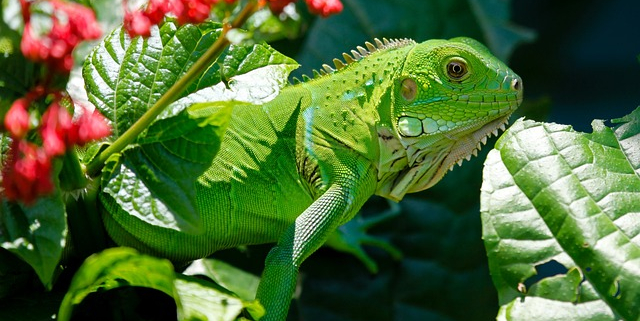Backyard Invaders
Backyard Invaders
Aggressive, annoying, abundant and invasive, these are all adjectives to describe a growing problem in Florida – iguanas.
Iguanas are a burden on Florida’s ecology and their population is constantly growing. Whether devouring crops or displacing native species, iguanas are a nuisance, burrowing under the foundations of homes, into seawalls and along canal banks and ponds. These scaly creatures are an ecological and economic challenge for the entire region.
Iguanas are native to Central and South America and were introduced to Florida as pets. However, due to escapes and intentional releases, their population has exploded, particularly in South Florida. The warm climate and abundant vegetation provide ideal conditions for their survival and reproduction. With minimal natural predators in the region, iguanas thrive in this area.
According to the Florida Fish and Wildlife Conservation Commission, iguanas were first spotted in South Florida in the 60s. As of now, they can be found as far north as Alachua, the Highlands and Hillsborough Counties. They are attracted to vegetation with soft foliage or flowers, most fruits (except citrus) and almost all types of vegetables.
Beyond the ecological and economic ramifications, the iguana invasion raises public health concerns. Iguanas are potential carriers of salmonella, posing risks to human health through direct contact or contamination of food and water sources. As their population continues to grow, the likelihood of human and iguana interactions increases, necessitating initiative measures to minimize health risks.
Recognizing the severity of the iguana invasion, the Florida Fish and Wildlife Conservation Commission and other environmental agencies in South Florida have implemented various strategies to mitigate the iguana’s impact. These include:
- Removal Programs: Trained professionals conduct trapping and removal programs to control iguana populations in heavily affected areas. When captured, iguanas are euthanized or relocated to designated areas to prevent further spread.
- Public Awareness Campaigns: Educational initiatives aim to raise awareness about the ecological and economic consequences of iguana invasion. Encouraging responsible pet ownership and discouraging the release of exotic pets into the wild are essential components of these campaigns.
- Research and Monitoring: Scientists and researchers from the University of Florida Institute of Food and Agricultural Sciences (IFAS) have conducted studies to better understand iguana behavior, population dynamics and habitat preferences. This knowledge informs targeted management strategies to effectively control iguana populations and minimize damage.
For more information about these efforts visit Iguanas in the Landscape and Green Iguana | FWC (myfwc.com).




